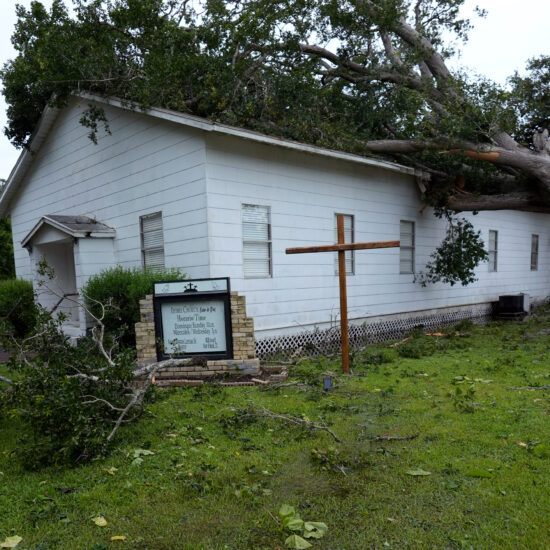Editor’s Note: The sixth in Word&Way’s seven-part series about the ongoing conflict between the Missouri Baptist Convention and five related entities takes a look at general insurance practices and the role insurance may play in covering legal costs.
Missouri Baptist Convention executive director David Clippard this year has promoted the notion that the MBC’s insurance carrier “likely” will cover most of the legal expenses the MBC has incurred over legal actions it has filed against five of its related entities.
Although Clippard repeatedly has stated the MBC policy with Church Mutual is “very clear,” most policies, particularly those customized for specific clients, are far more complex than an average homeowner’s policy. In this case, a court will decide if Clippard’s contention has merit.
In 2000 and 2001, The Baptist Home, Word&Way, the Missouri Baptist Foundation, Missouri Baptist University and Windermere Baptist Conference Center changed their corporate charters to allow each entity to elect its own trustees, rather than to continue to allow the convention to elect them.
When trustees for the five institutions refused to rescind the new charters, the convention filed legal action against them on Aug. 13, 2002, in 19th Judicial District Circuit Court in Cole County. Judge Thomas Brown dismissed the case in March, a decision the MBC currently is appealing. On Oct. 25, the convention filed new legal action against the five, also in the Cole County court.
Three U.S. insurance companies handle the majority of church, para-church and other ministry-based, not-for-profit organizations – Church Mutual of Merrill, Wisc.; GuideOne of Des Moines, Iowa; and Brotherhood Mutual of Fort Wayne, Ind.
In addition to the MBC, Church Mutual covers Word&Way, the Foundation and Windermere. The Home is protected through GuideOne. MBU secured its coverage through United Educators, which specializes in educational entities and personnel.
Three of the six churches named in the original legal action – First Baptist Church, Bethany; Oakwood Baptist Church, Kansas City; and Springhill Baptist Church, Springfield – also are insured by Church Mutual.
Last November, Church Mutual sought a ruling from the U.S. District Court for the Western District of Missouri to determine whether the company should be required to pay for legal fees under the terms of its policies for its covered clients. In September, the company voluntarily dropped its action against the Foundation, Word&Way and Windermere. The case against the other four clients is still pending.
The convention is obligated to cover any costs the six churches named as plaintiffs in the original legal action might have incurred. In 2002, each church passed a resolution that authorized its pastor to serve as the church’s “legal representative.”
According to the resolution, each church was not to have been obligated financially. MBC legal counsel was to represent each church, and the convention was to “indemnify the church for any costs or liability.”
Because the policies for each affected institution and church are customized to meet individual needs, representatives for the firms could only provide general information.
Church Mutual representatives said they could not answer general questions due to pending litigation. Basic information about the company’s policies is available in its brochures.
Usually clients opt for general liability insurance, which primarily covers the client against bodily injury claims, property damage or personal injury claims made as a result of ministry operations.
Since no single type of policy is designed to cover every legal contingency, some clients pay for additional endorsements for specific items such as sexual harassment, for broader general legal coverage or for other protection. Many also add umbrella or excess liability policies for additional coverage. Most firms do not limit the number of excess insurance policies clients may request.
Many corporate entities also will provide directors, officers and trustees policies to cover their governing boards for the costs of litigation should they be sued as individuals.
MBC leaders have argued that Church Mutual should cover the convention’s legal costs because the five institutions filed counterclaims to the convention’s first legal action.
Foundation attorney Larry Tucker described the counterclaims as routine and that they are not considered as separate lawsuits. He noted that the counterclaims requested that should the judge rule against the convention, he would rule that the institutions acted within their legal rights. The five entities have not yet decided whether to file counterclaims in the new litigation.
While most insurance companies tailor policies to meet specific client needs, at least some Church Mutual legal protection endorsements specify that other lawsuits, countersuits, counterclaims, law enforcement inquiries and other legal actions that are “substantially related” to one “defensible incident” will be regarded as one “suit.” In other words, the company could view other lawsuits as part of one legal action against a client.
If the convention’s policy includes that endorsement, the MBC’s contention that the insurance firm will “likely” pay for legal fees may not hold true.
In its final article, Word&Way will explore attempts at reconciliation made before and after legal action was filed.
Additional links to the entire series:
Beyond Rhetoric, Part 1: Overview
Beyond Rhetoric, Part 2: Theology
Beyond Rhetoric, Part 3: Politics
Beyond Rhetoric, Part 4: Accountability
Beyond Rhetoric, Part 5: Assets
Beyond Rhetoric, Part 6: Insurance
Beyond Rhetoric, Part 7: Reconciliation






